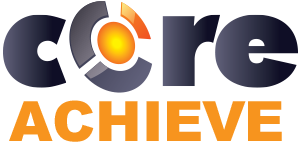Nurturing Future Leaders: The Role of Leadership Skills in Training
November, 28 2023
Other posts:
Enhancing Team Dynamics for Effective Group Decision-Making with LMS Integration
Organizations increasingly rely on collaborative efforts to solve complex problems, innovate, and adapt to change, but how do we ensure that collaboration is happening.
Maximizing Small Business Potential with Training Technology
Training technologies can push small businesses ahead of their competitors, but what are the factors that go into choosing the right technology?
Unlocking Employee Potential: The Transformative Benefits of an Interactive Learning Management System (LMS)
Interactive training allows for unlocking employee potential, but how is it done?
Building a Robust Sales Pipeline with Training
Every organization wants a streamlined sales pipeline, but building one requires a series of interlocking activities with one of the most important being training.
Strategies for Adapting In-Person Training to Online Platforms
Online training is one of the most flexible ways of delivering training across organizations, but how do you even begin to adapt in-person training into online?
Leadership can make or break an organization, leaving it all up to luck is a gamble on longevity with very low pay-offs.
Leadership skills are no longer just valuable for those in management positions; they are essential for all employees at every level. Learning Management Systems (LMS) are used primarily for introduction training, but organizations can use them to foster more advanced skills, like leadership, in their employees.
The Evolution of Leadership Skills
Leadership skills extend beyond traditional management roles. They encompass qualities such as effective communication, problem-solving, adaptability, and the ability to inspire and guide others. Regardless of the industry landscape, these skills are vital.
Leadership Skills in Training
Communication:
Effective leaders are skilled communicators. LMS platforms enable organizations to deliver training materials through various mediums, fostering effective communication skills in employees. From written content to videos and webinars, LMS platforms can be used to promote diverse communication styles.
Problem-Solving:
Employees of every industry need to be able to complete complex problem-solving scenarios. LMS platforms can simulate real-world situations, encouraging users to think critically and develop problem-solving skills.
Adaptability:
Leaders must be adaptable and open to change. LMS platforms offer flexibility in training, if set up properly, an LMS can be used as an information library for employees to access training materials at their convenience. This flexibility helps individuals adapt to new information and schedules.
Collaboration:
Successful leaders collaborate and build strong teams. LMS platforms offer collaborative tools such as discussion forums or comments, using those tools prepare users to use collaboration for problem solving even before stepping fully into their role.
Nurturing Leaders with LMS Platforms
Personalized Learning Paths:
LMS platforms allow organizations to create personalized learning paths tailored to each employee's needs. This individualized approach enables employees to focus on areas where they can develop leadership skills effectively.
Continuous Learning:
Leadership development is an ongoing process. LMS platforms support continuous learning, by being a repository that employees can access training materials and resources whenever they need them.
Feedback and Assessments:
LMS platforms provide tools for assessment and feedback. Constructive feedback helps employees understand their strengths and areas for improvement, fostering growth in leadership skills.
Remote Learning:
Many environments include remote work and an LMS platform, given its flexibility, can facilitate leadership training regardless of employees' physical locations. This accessibility broadens leadership development opportunities.
Data-Driven Insights:
LMS platforms collect data on users’ progress. Organizations can use this data to identify emerging leaders and offer targeted training and mentorship opportunities.
The Impact on Organizations
Enhanced Leadership Pipeline:
Investing in leadership skills through LMS platforms results in a strong leadership pipeline within the organization.
Improved Employee Engagement:
Employees who feel their organization invests in their development are more engaged and committed.
Innovation and Adaptation:
Leadership skills enable employees to drive innovation and adapt to changing business landscapes, keeping the organization agile.
Positive Workplace Culture:
A leadership-focused training approach fosters a positive workplace culture where collaboration and open communication thrive.
Leadership skills are no longer the exclusive domain of senior management. LMS platforms offer a practical and scalable solution to nurture leadership skills throughout an organization. By embracing these platforms and integrating leadership training into their strategies, organizations can build a workforce that is better equipped to face the challenges of the future. In doing so, they not only invest in their employees' growth but also secure their own long-term success.
Get started with CoreAchieve today for free.
Photo by Alexander Mils on Unsplash

Leave comment: